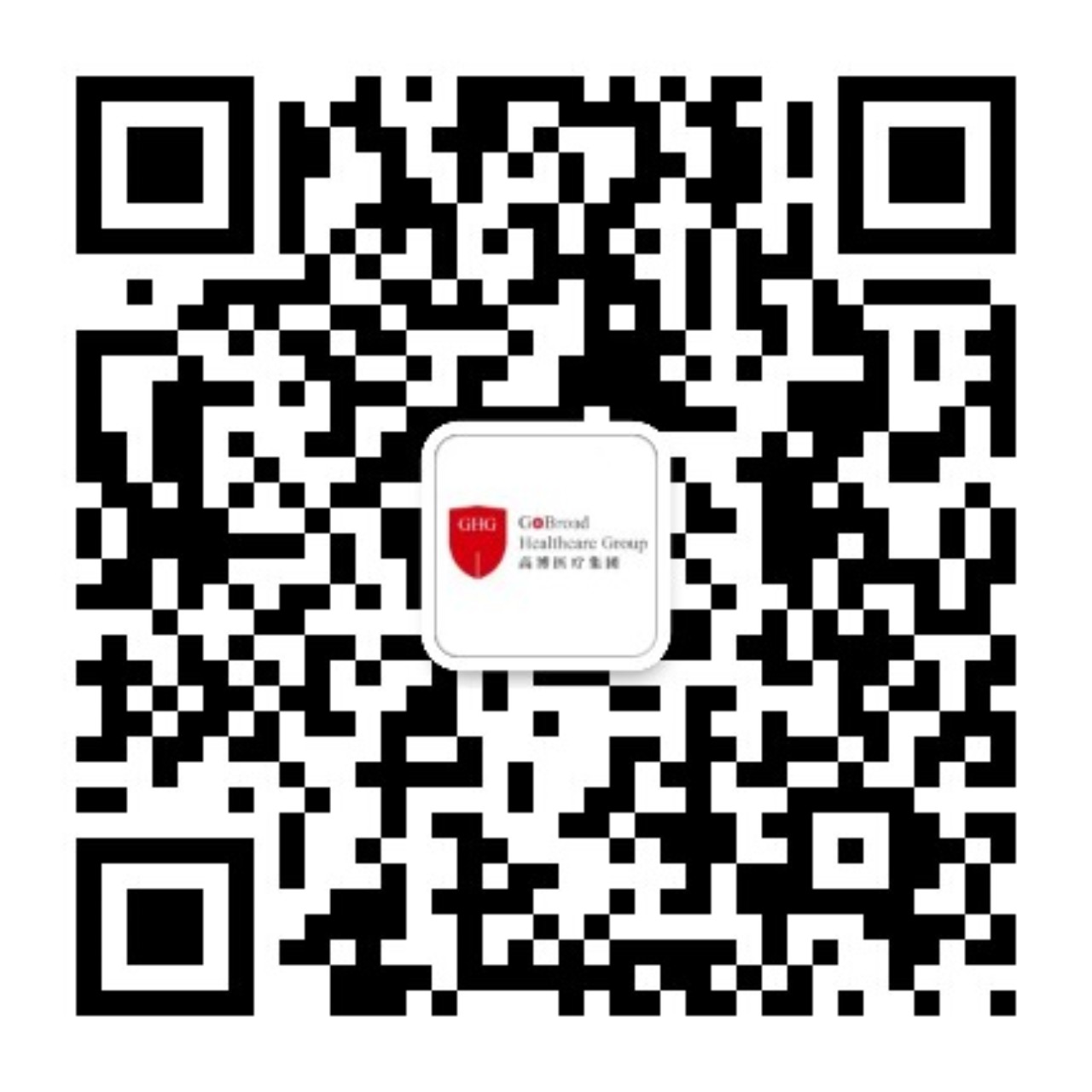The 500th Successful Transplant Discharge at GoBroad Medical Institute of Hematology(Shanghai Center)!500 Families Rebuilt,500 Lives Reborn
2024-6-23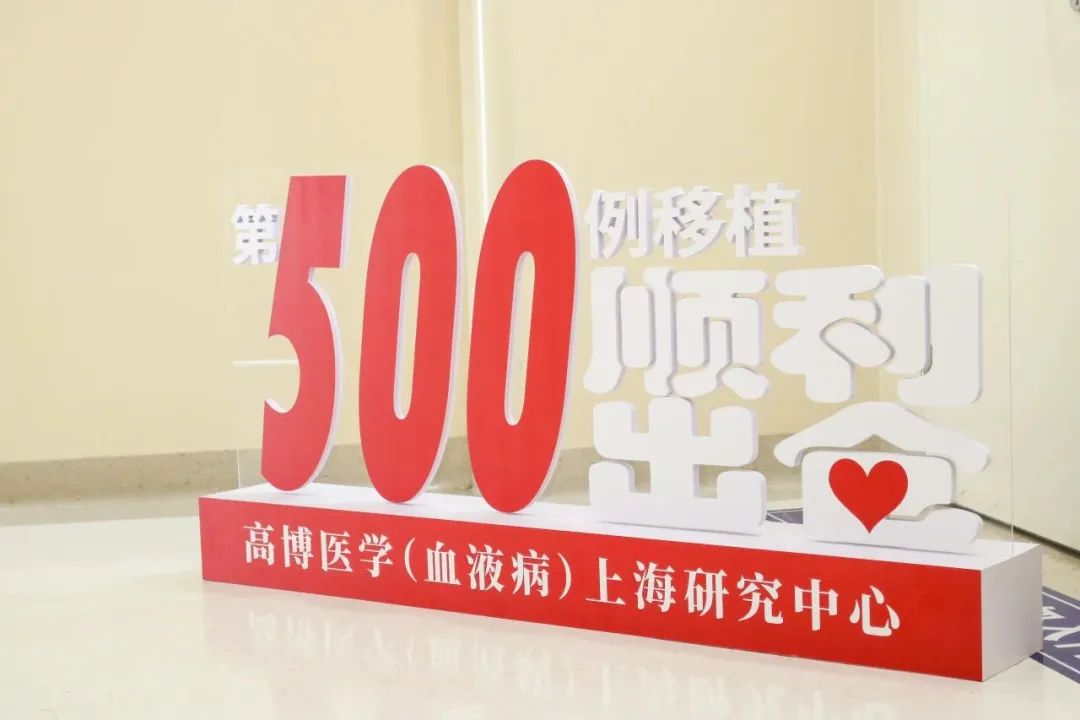
Special Edition: 500 Cases of Hematopoietic Stem Cell Transplants
Mr. Zhang, aged 39, has been battling acute myeloid leukemia for 12 long years. During this time, he has endured three recurrences, undergone over a dozen cycles of chemotherapy, and received radiation therapy, suffering immensely yet never giving up hope for a cure. In June 2023, when his disease recurred again, Mr. Zhang arrived at GoBroad Shanghai Zhaxin Hospital. Our medical team tailored a new chemotherapy regimen that brought his primary disease into complete remission (CR3). In pursuit of a lasting remission and to minimize the risk of recurrence, Mr. Zhang underwent an allogeneic hematopoietic stem cell transplantation in the transplant unit of GoBroad Shanghai Zhaxin Hospital in October this year. Overcoming numerous challenges, he successfully exited the isolation ward and became the 500th patient at GoBroad Medical Institute of Hematology(Shanghai Center) (Shanghai Zhaixin Hospital/Shanghai Laiquan Hospital) who received a transplant.
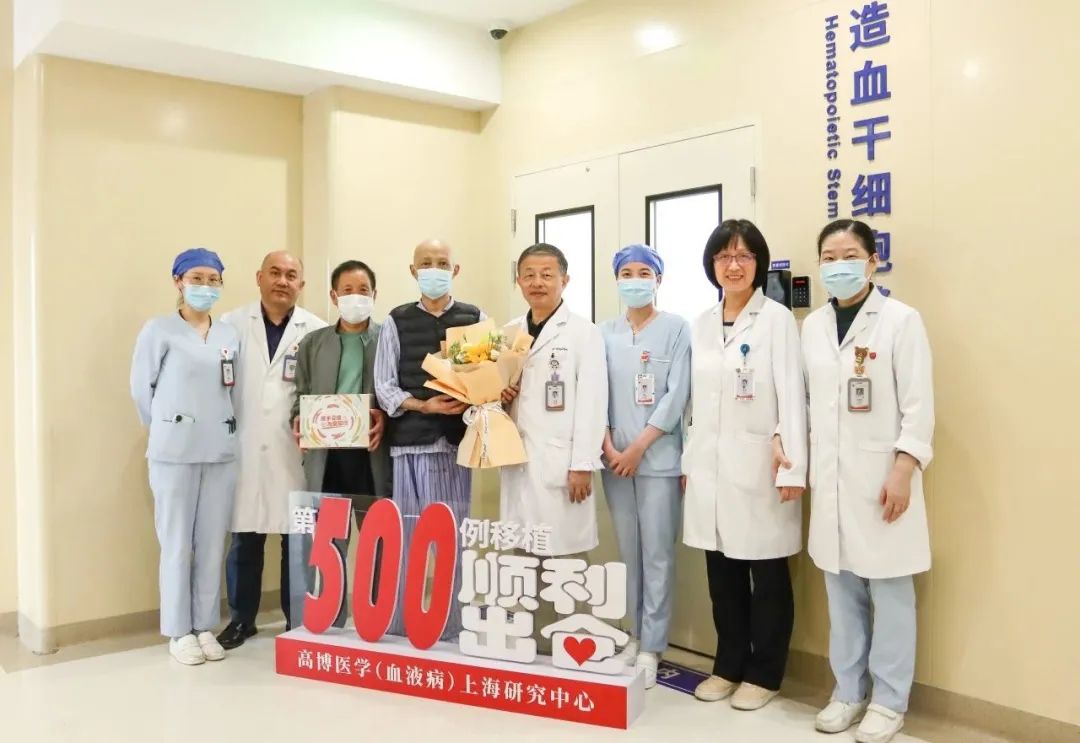
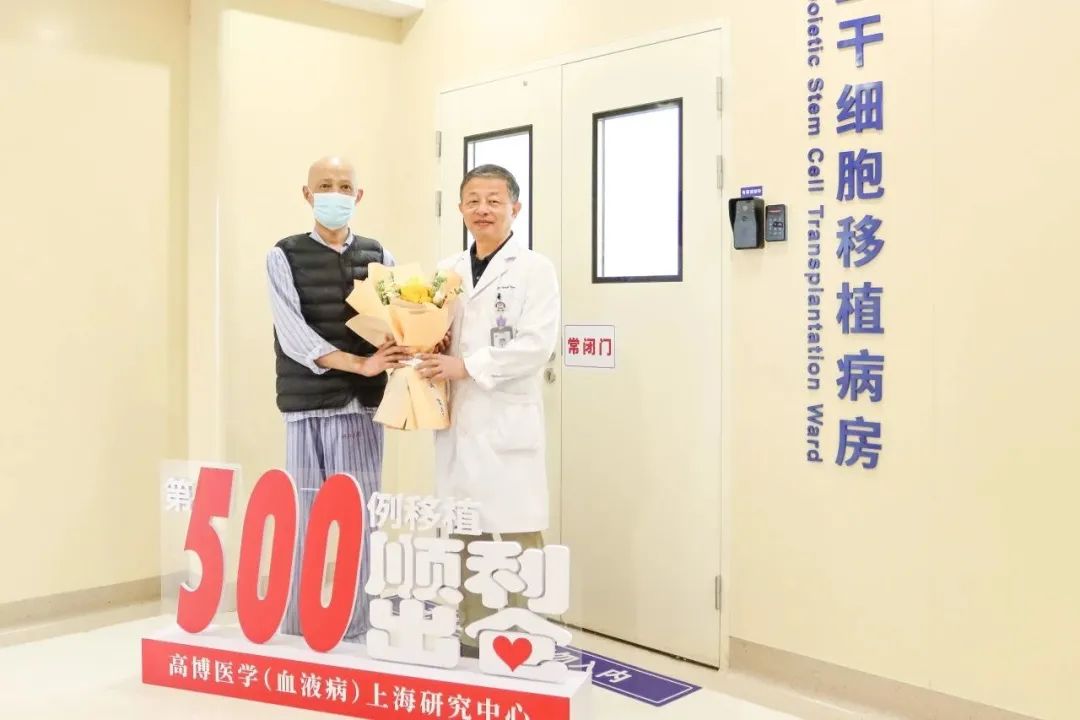
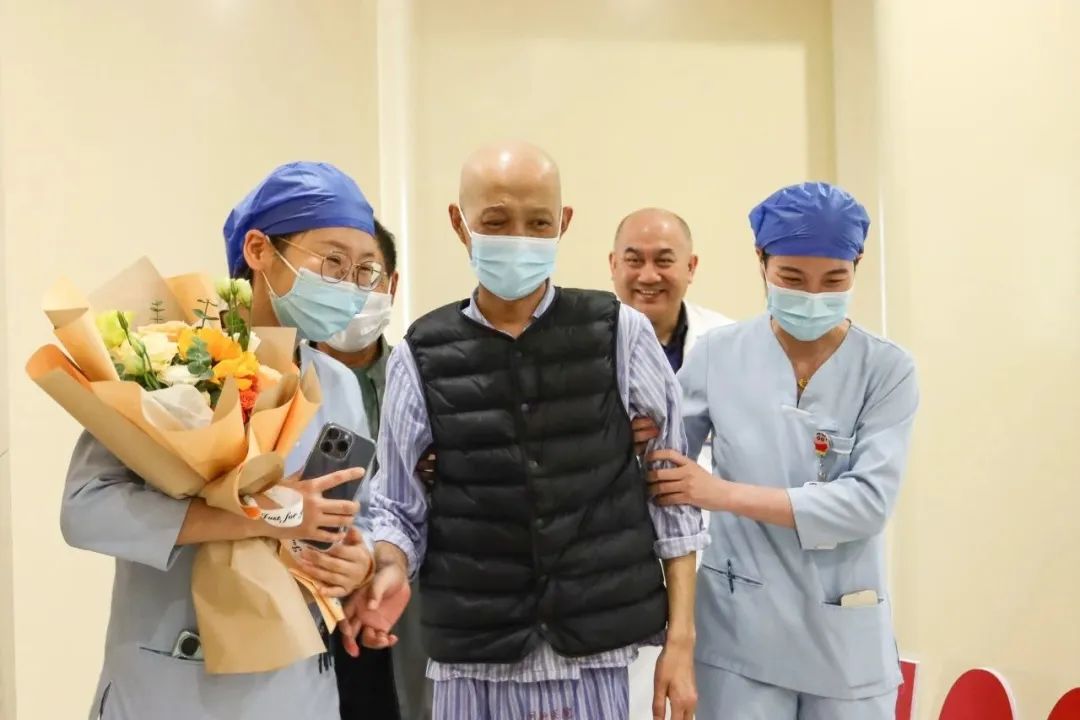
Upon Mr. Zhang's discharge from the isolation ward, we held a simple ceremony to celebrate his rebirth. Reflecting on his journey, Mr. Zhang emotionally stated, "It's been too long! I've been living with leukemia for 12 years, this being the third recurrence. Before coming to Zhaixin Hospital, I thought there was no hope left for me, but you all gave me hope!" Recalling his time in the transplant unit, Mr. Zhang expressed his gratitude, saying, "I am particularly thankful to my transplant physician, Director Liu Huixia, and the nursing team. They cared for me and comforted me constantly, giving me strength during my most helpless and desperate moments when I felt like giving up."
Five hundred is more than just a number. From admitting the first transplant patient in 2020 to reaching the milestone of 500 cases today, 500 patients from all corners of the country have regained their lives here, and in turn, 500 families have found hope and reclaimed their smiles within these walls.
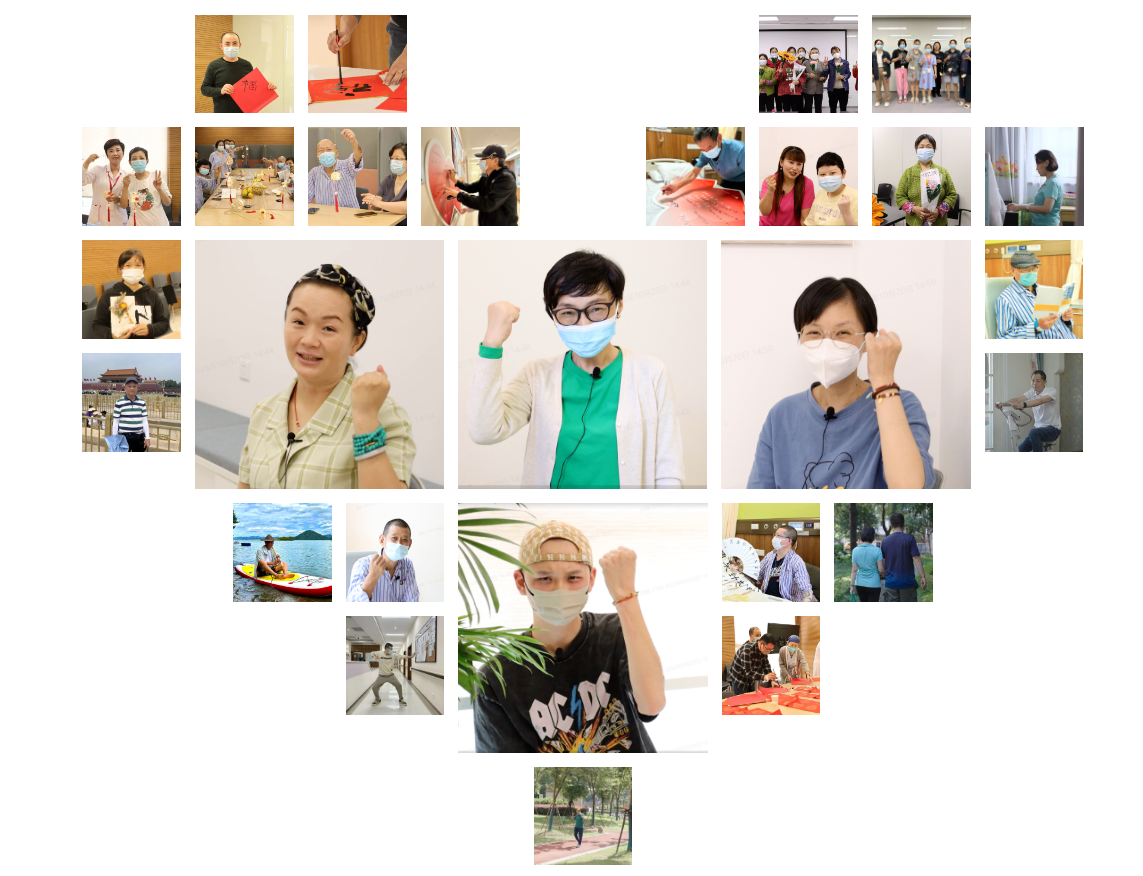 One year after the transplant, 26-year-old Xiao Ze resumed his typical nine-to-six work routine; Mr. Xiao, 51-year-old, enjoys tea, mountain views, and road trips.
One year after the transplant, 26-year-old Xiao Ze resumed his typical nine-to-six work routine; Mr. Xiao, 51-year-old, enjoys tea, mountain views, and road trips.
Two years after the transplant, 60-year-old Mr. Chu is relishing his retirement in the countryside, finding solace in nature; 22-year-old Lele continues to pursue his musical dreams.
Three years after the transplant, 71-year-old Mr. Ren reunites with old friends, sharing laughter and life stories; 39-year-old Ms. Yu embarks on her second exciting chapter in life.
Post-transplant, they have been granted a second lease on life, finding new paths and purposes, i.e., returning to work, traveling the lands, starting families, or reveling in the joys of family life.
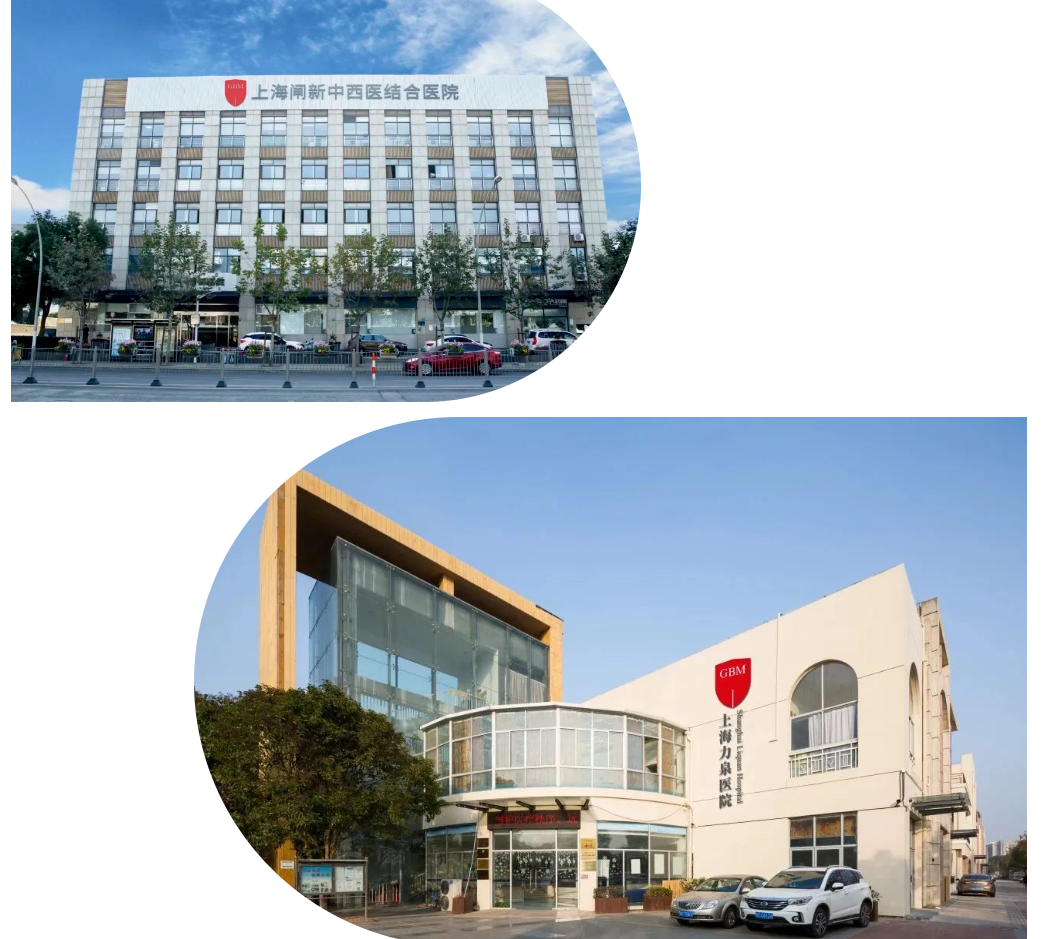
Over three years, 500 transplant cases
At the end of 2019, Professor Wang Chun chose GoBroad Medical Institute of Hematology (Shanghai Center) (Shanghai Zhaxin Hospital/Shanghai Liquan Hospital) as a new starting point after retirement. Here, he leads a team of medical and clinical professionals from tertiary-Grade A hospitals in overseeing medical and clinical operations, specializing in hematology with a primary focus on hematopoietic stem cell transplantation for the treatment of hematological malignancies. Serving as a complementary addition to Shanghai's public healthcare system, they collectively build a line of defense for patients with blood diseases.
Under the leadership of Professor Wang Chun and the joint efforts of the medical and clinical team, GoBroad Shanghai Zhaxin Hospital and Shanghai Liquan Hospital have jointly completed over 500 cases of hematopoietic stem cell transplantation, breaking new ground and achieving a milestone leap. After more than three years of hard work, the overall strength and reputation of the hospitals have continued to improve. According to data from the "China Hematopoietic Stem Cell Transplant Registry," the hospitals have risen in rank from 58th in 2020 to 26th in 2022. Significant progress has been made in hematopoietic stem cell transplantation in the past two years alone. Patients who have completed treatment through transplantation include a wide range of conditions such as non-Hodgkin lymphoma, acute myeloid leukemia, acute lymphoblastic leukemia, severe aplastic anemia, chronic myelomonocytic leukemia, myelodysplastic syndrome, multiple myeloma, chronic myeloid leukemia, Hodgkin lymphoma, primary myelofibrosis, paroxysmal nocturnal hemoglobinuria, and yolk sac tumor. In addition to the comprehensive range of treated diseases, effective treatment has been provided for older patients. Among these transplant patients, 30% fall within the age range of 50-59, and nearly 20% are elderly patients aged 60 or above, with the oldest transplant recipient being over 74 years old.
As a member of the Shanghai Ruijin Hematologic Disease Medical Alliance, our center has established a dedicated post-transplant management ward for referred patients. We collaborate with member units of the medical alliance to conduct clinical research, initiate cross-provincial cooperation in the Yangtze River Delta, and better provide diagnostic and therapeutic services for patients with hematologic tumors. Families of patients with blood diseases seeking treatment here come from virtually every province across the nation.
Overcoming challenges, exploring forbidden areas
Even before joining the GoBroad Healthcare Group, Professor Wang Chun, who had dedicated over three decades to the field of hematology, had accumulated rich experience in hematopoietic stem cell transplantation for refractory leukemia, especially in the transplantation of elderly patients and the management of infections in hematologic diseases. He has created numerous miracles and gained high recognition and praise from the academic community both domestically and internationally. Professor Wang Chun never shies away from challenges. He believes that doctors can only break boundaries, challenge taboos, and drive medical advancement and progress by not limiting themselves and continually tackling difficult cases.
In the past three years, breakthroughs and innovations have never ceased.
Challenge the non-remission transplantation
Performing hematopoietic stem cell transplantation as a salvage therapy while the primary disease is uncontrolled, such as in the case of refractory leukemia, conventionally requires the patient to achieve complete remission first. However, there is a subset of patients who do not attain remission. Without transplantation, these patients would face inevitable mortality. What is the solution? Professor Wang Chun's approach is to proceed with transplantation despite this. "We have ventured into performing transplants in non-remission patients, and currently, our success rate stands at 50%."
Breaking through age barriers
Elderly patients have long been considered a taboo for bone marrow transplantation centers across China, with the upper age limit for most procedures set at 55. Back in 2017, Professor Wang Chun's team pioneered a peripheral blood hematopoietic stem cell transplantation for a 67-year-old patient using a haploidentical donor, thus shattering the "age barrier." In December 2020, GoBroad Shanghai Zhaixin Hospital successfully performed an allogeneic hematopoietic stem cell transplantation on a 71-year-old patient with angioimmunoblastic T-cell lymphoma. Then, in September 2022, the successful autologous stem cell transplantation for a 74-year-old patient with plasma cell leukemia marked another breakthrough of the "age barrier" by Professor Wang Chun's team in hematopoietic stem cell transplantation, creating the possibility of a cure for elderly patients with blood diseases.
Professor Wang Chun commented, "Most centers in China limit transplantation to those under 60, but in our center, cases involving patients over 60 account for nearly 20% of our transplants, which is a considerably high proportion."
Breakthrough of transplantation therapies for refractory hematologic tumor
Professor Wang Chun's team was among the pioneers in China to initiate allogeneic hematopoietic stem cell transplantation for the treatment of myelofibrosis, achieving groundbreaking results. The team tailors modified conditioning regimens according to individual patient conditions, leading to a notable increase in the 5-year survival rate post-transplant. The cure rate for myelofibrosis has reached 60% following these transplantations, whereas previously, even with reduced-intensity conditioning regimens, the 5-year survival rate stood at only 45%.
For patients with refractory peripheral T-cell lymphoma undergoing transplantation, the team employed a modified pre-transplant conditioning regimen incorporating antithymocyte globulin (ATG), resulting in a 2-year overall survival rate approaching 70%. This significantly surpasses the national average of 30% to 40% and the contemporaneous international reported rate of 41%. Recently, the team published in the core Chinese journal 'Chinese Journal of Hematology' an article titled "Haploidentical Hematopoietic Stem Cell Transplantation with a TBI plus rATG-Based Combined Conditioning Regimen for Patients with Chemotherapy-Resistant Progressive Peripheral T-Cell Lymphoma: A Report of 11 Cases."
Donor-specific HLA antibodies (DSA) are considered a significant obstacle to the successful engraftment of donor cells, closely associated with transplant rejection and engraftment failure, and are often listed as a transplant contraindication. The team has achieved successful engraftment of stem cells and restoration of hematopoietic reconstruction in patients with strong positive DSA after transplantation through an innovative intensified immune clearance preconditioning regimen. Recently, the research results "Impact of immunosuppression intensified conditioning regimen for patients with strong positive pre-transplantation donor-specific anti-HLA antibodies (DSAs) undergoing haploidentical hematopoietic stem cell transplantation " were published in the "Chinese Journal of Hematology" .
Furthermore, Professor Wang Chun's team focused on tackling relapse following transplantation. They were among the pioneers in China to establish a monitoring technique for chimerism status after allogeneic hematopoietic stem cell transplantation. This involves scientifically monitoring the percentage of engrafted cells post-surgery to ensure timely intervention through adjusting medications, based on observing cell count percentages, before a relapse occurs, effectively reducing the post-transplant relapse rate. The clinical significance of this technical approach is substantial, and its application has been instrumental in raising the success rate of transplants by Professor Wang's team to 60%.
Grounded in academia, focused on innovation
Since its establishment, the GoBroad Medical Institute of Hematology (Shanghai Center) (Shanghai Zhaxin Hospital/Shanghai Liquan Hospital) has maintained close and extensive academic exchanges with hematological experts in Shanghai and across the country. It regularly hosts the "Shanghai Autologous Hematopoietic Stem Cell Transplantation Summit Forum" and autologous hematopoietic stem cell transplantation training courses. Additionally, it has established the "Cloud Connection · Exploring Difficult Cases" online platform for exchanging difficult cases, with over 1500 hematologists from all over the country participating in learning and exchange activities and engaging in heated academic discussions on autologous hematopoietic stem cell transplantation-related issues.
Professor Wang Chun explained, "To allow surrounding hospitals to understand the strength and advantages of GoBroad, in recent years, we have actively assisted in improving the standardized diagnosis and treatment levels and professional abilities of primary medical institutions through professional training and academic exchanges. At the same time, we have generously shared our expertise in the establishment and implementation of standardized diagnosis and treatment systems for key technologies in the field of hematology, assisting in the improvement of medical standards in surrounding primary hospitals."
In addition to standardized clinical diagnosis and treatment, our center has always been committed to exploring the challenging areas of hematologic diseases and expanding new treatment methods to improve patient survival rates and the success rate of hematopoietic stem cell transplantation. Since its establishment, we have published multiple professional academic papers in internationally and domestically renowned core journals, including 2 SCI articles with a cumulative impact factor of 18 points, 3 articles in the Chinese Journal of Hematology, and 2 articles in the Journal of Clinical Hematology. Research areas cover a wide range of topics, including strategies for the prevention and treatment of fungal and bacterial infections in hematologic disease patients, mechanisms of anti-thymocyte globulin-induced leukemia cell killing, post-transplant chimerism monitoring in allogeneic hematopoietic stem cell transplantation, hematopoietic stem cell transplantation for T-cell lymphoma, and hematopoietic stem cell transplantation for hematologic disease patients with strongly positive HLA donor-specific antibodies (DSA), among others.
Team Message
The core medical and nursing staff at GoBroad Shanghai Zhaxin/Liquan Hospital all hail from Shanghai First People's Hospital each carrying the same aspirations and vision. Leaving behind their long-standing workplaces, they sequentially followed Professor Wang Chun as entrepreneurs to join this new team. Their bravery is rooted in their shared appreciation for the hospital's unwavering commitment to prioritizing "The Needs of the Patient Come First," a sentiment that resonates deeply with their collective goal - to become dedicated clinicians focused on healing and saving lives. Remaining true to their original intentions and forging ahead, they have tirelessly worked on the clinical frontlines day and night, standing shoulder to shoulder with patients and their families in the battle against illnesses!
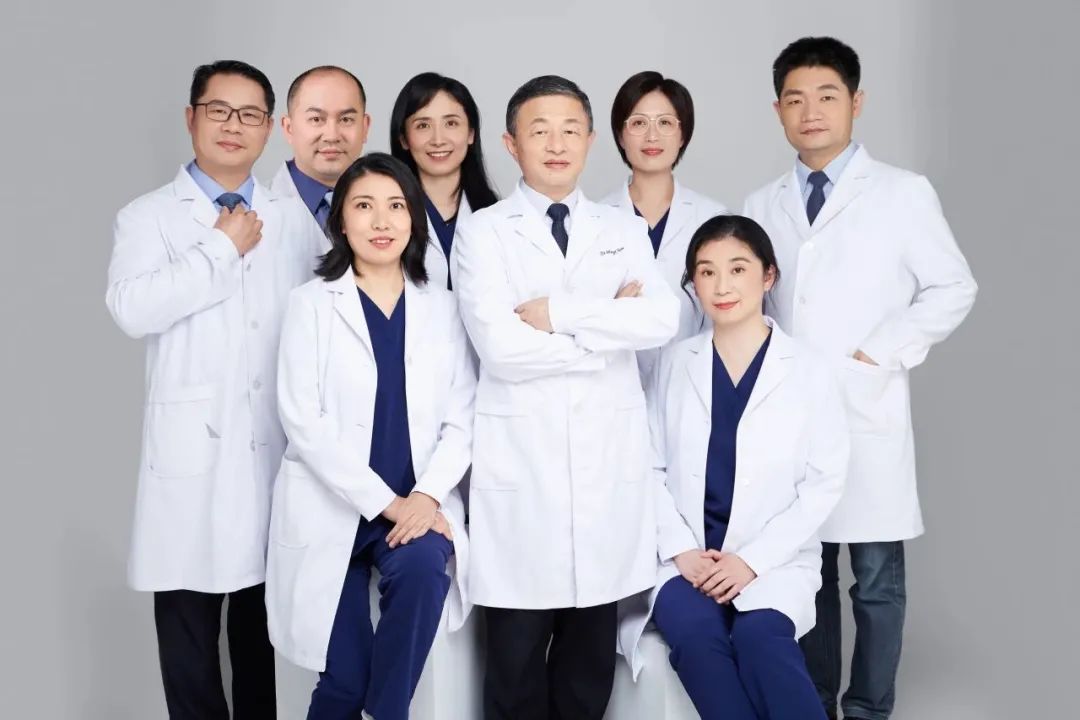
"Before transplantation, we will conduct a comprehensive assessment of the patient's disease status, physical fitness, organ function, psychological state, and comorbidities, among other aspects. Then, when designing the conditioning regimen, we tailor it to the patient's actual condition, selecting the most appropriate drugs and doses to minimize the patient's transplant risk. No matter how difficult it may be, we must have unwavering faith, believe in the doctors and medicine, and trust that we can emerge from the shadows and reclaim a new life."
— Zhu Jun, Medical Director, GoBroad Medical Institute of Hematology (Shanghai Center) (Shanghai Zhaxin Hospital/Shanghai Liquan Hospital)
"The road to recovery for hematologic patients is arduous and lengthy. Behind the encouragement of 'face it bravely, and seek active treatment' lie the gritted teeth and interminable days of patients and their families. Life is so unpredictable, yet you are all courageous warriors! We will always be by your side, walking this journey with you. May those who cherish life find their way through the vortex of fate, and may the path ahead be filled with warmth and smooth sailing!"
— Zhao Chuxian, Director of the Transplant Center, GoBroad Medical Institute of Hematology (Shanghai Center) (Shanghai Zhaxin Hospital/Shanghai Liquan Hospital)
"Aging, illness, death, and renewal are eternal themes each of us must confront. I hope that every patient finds the strength to persevere alongside their doctors, weathering the toughest periods, and emerging into renewed life. The path of transplantation may be fraught with twists and turns, but its destination promises light; let us strive together towards this new beginning."
— Liu Huixia, Transplant Physician, GoBroad Medical Institute of Hematology (Shanghai Center) (Shanghai Zhaxin Hospital/Shanghai Liquan Hospital)
"In 2019, I joined GoBroad Shanghai Zhaixin Hospital, growing alongside the department and the institution; every moment past is a gift! Through trials, we grow stronger and expand. We may not shine like the brightest stars, but we consistently radiate warmth. With hearts turned towards the sun, fearless amidst storms, we forge ahead! We are not merely doctors, but also supporters and comrades-in-arms to our patients, united in defeating illnesses, restoring confidence, and reclaiming happiness!"
— Chen Honglin, Physician, Fifth Ward, GoBroad Shanghai Zhaxin Hospital
"Driven by trust, we give our all; fueled by responsibility, we adhere to our duties diligently! Over the three years growing up with Zhaixin, I've transitioned from academia to hospital life, from textbooks to clinical practice. In these years, confronted with complex and critical cases, and patient diagnostic dilemmas, I've had the invaluable guidance of knowledgeable and dedicated mentors. Such experiences are pivotal for a young doctor's clinical development. Healing and saving lives are both a mission and my original aspiration. I will continue to refine my medical skills through learning and practice, striving to help more patients!"
— Shi Yanci, Physician, Fourth Ward, GoBroad Shanghai Zhaxin Hospital
The Final Line of Defense
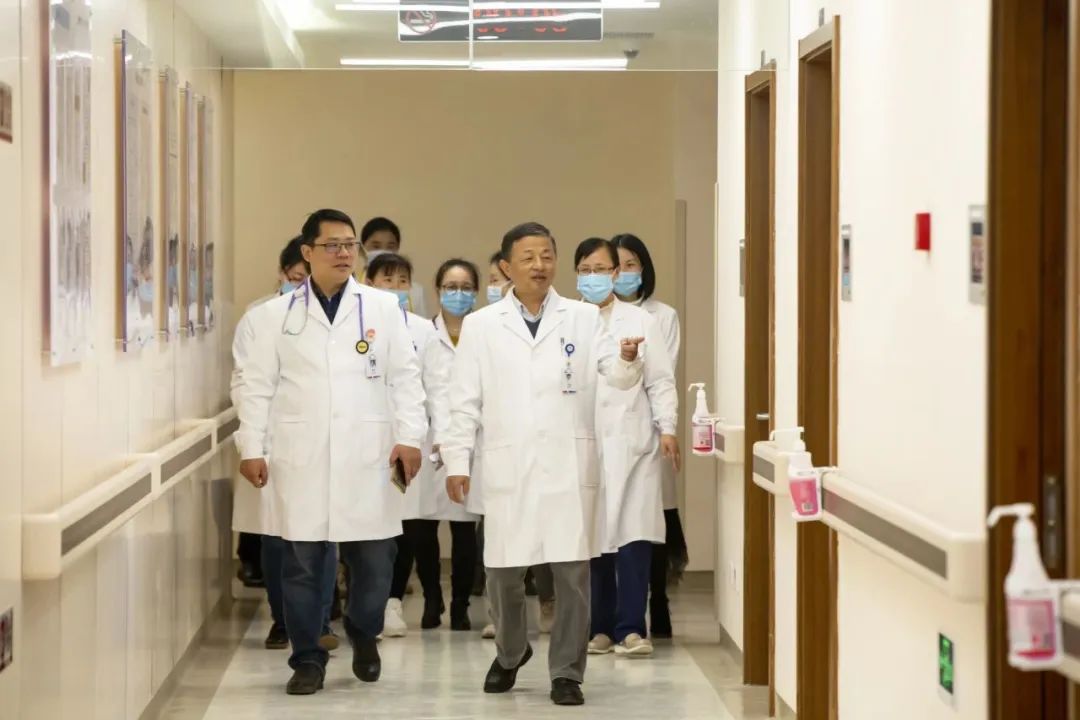
Since our center was established in January 2020, we have consistently adhered to the philosophy of "The Needs of the Patient Come First." We continuously accelerate the comprehensive development of clinical diagnosis, treatment, and technological innovation. Starting from the unmet diagnostic and therapeutic needs of hematology patients, we focus on overcoming the challenges of blood diseases, bravely venturing into medical "forbidden zones," and earnestly fulfilling our role as the "last line of defense for hematologic diseases in Shanghai."
As Professor Wang Chun said, "In the past, blood cancer was deemed incurable. Now, we have methods to treat and even cure it, though not with a hundred percent success rate. Still, it's fair to say that hematological malignancies are no longer terminal illnesses without any hope. Here at GoBroad Shanghai Zhaixin Hospital/Liquan Hospital, we represent the last line of defense in hematologic disease treatment. Even if other hospitals have told you there's no cure, we encourage you to visit us, for we might still have solutions to offer."


